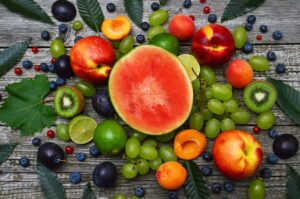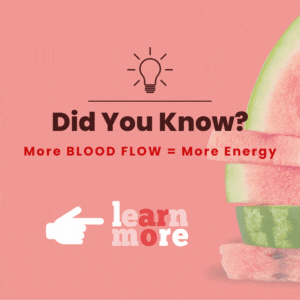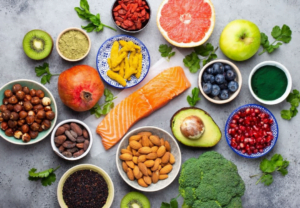If you’re trying to lose weight or simply eat healthy, superfoods are an excellent way to incorporate a substantial amount of nutrients into a single meal or snack.
While there isn’t a magic formula that zeroes in on belly fat to eliminate it, there are specific “superfoods” guaranteed to reduce cravings, boost metabolism and sustain energy levels. As a result, helping you lose weight as you eat.
These foods also assist in lowering cholesterol and blood pressure levels, decrease the risk of heart disease and prevent type-2 diabetes.
Unfortunately, some superfoods are also associated with a high number of calories, which can have an undesirable effect on your waistline.
Here are 18 low-calorie superfoods which can help you lose weight and keep fit, while still providing all the nutrients you require.
Low-Calorie Superfoods
Cinnamon
Cinnamon is a wonderful additive that provides flavor to otherwise bland food. It lowers cholesterol and blood pressure levels. This spice can change the way sugar and carbs are metabolized, meaning that it speeds up the calorie-burning process.
Green Tea
Green tea is a powerhouse rich in polyphenol antioxidants which have been shown to speed up your metabolism and boost the body’s ability to burn fat. It also helps maintain body weight by keeping you hydrated and curbing your appetite for sustained periods.
Additionally, green tea supports immunity, heart health, balances blood sugar, protects against cancer, and prevents diabetes.
Aim for 2 cups daily to get the maximum benefits, especially after heavy meals.
Apples
Apples are loaded with antioxidants, phytonutrients, vitamins, and minerals, along with dietary fiber. Their high fiber content keeps you full longer and may help with weight loss.
Blueberries
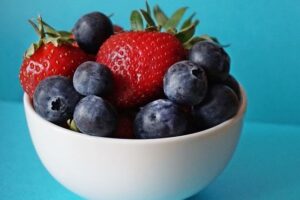 Blueberries are highly nutritious, delicious, and low in calories. A 3.5 oz serving has only 57 calories and 2.4 grams of fiber which improves digestion and keeps you full longer. They are filled with antioxidants, which are key for healthy aging, and preventing oxidative stress that accelerates aging.
Blueberries are highly nutritious, delicious, and low in calories. A 3.5 oz serving has only 57 calories and 2.4 grams of fiber which improves digestion and keeps you full longer. They are filled with antioxidants, which are key for healthy aging, and preventing oxidative stress that accelerates aging.
In addition, they contain Vitamins C and K, which are key for immune health, and manganese which helps metabolize fats, proteins, and carbs.
On top of that blueberries do not have any fat, cholesterol, or sodium. Try eating 1 cup daily, either as a healthy snack or included in your yogurt, smoothies, or fruit salad.
Grapefruit
Studies indicate that consuming half a grapefruit before meals leads to significant weight loss. This is due to its high levels of fat-burning enzymes which can even reduce insulin resistance.
Moreover, its high water and fiber content fill you up, so you eat less and have fewer cravings. Grapefruits are also rich in antioxidants, vitamins, and low in calories.
Keep in mind, however, that grapefruits may interact negatively with certain medications, such as statins, antihistamines, corticosteroids, and heart rhythm drugs.
Oranges
Oranges are a popular staple in many diets and are incredible for weight loss. They are a healthy source of fiber, folate, antioxidants, and vitamin C. It has been reported that high vitamin C intake results in lower body-mass indexes (BMI).
Having sufficient amounts of vitamin C accelerates the fat-burning process. This is mainly because vitamin C promotes carnitine production, which is a molecule needed for breaking down fatty acids in the body.
Eating whole oranges or drinking freshly squeezed orange juice is healthier than buying packaged juice. This is owing to the fact that most store-bought juices contain fewer nutrients, added sugars, as well as preservatives.
Pears
Not only are pears delicious, but they offer numerous health benefits. They can boost immunity, improve heart health, circulation, and reduce inflammation. Pears are rich in vitamin C, folate, copper, and potassium. They’re truly superfoods when it comes to losing weight.
One pear contains an average of 6 grams of dietary fiber. This promotes bowel regularity and good overall digestive health. In order to get the full benefits of the fiber, do not remove the skin.
Strawberries
With only 32 calories per half-cup serving, they are fat-free, low in sodium and sugar, making them great for weight management.
Not to mention, the power of vitamin C may also help to maintain healthy vision, and build collagen resulting in younger-looking skin.
Almonds
Almonds are high in fiber, protein, magnesium, manganese, and healthy monounsaturated fats.
Despite being high in calories, the high fiber and protein content can increase fullness so you eat fewer calories. An ideal serving is roughly 1 ounce or 23 almonds.
Interestingly enough, about 15% of the calories found in nuts are not absorbed by the body. That is what makes them such a weight loss friendly food.
Furthermore, almonds are a source of melatonin and the sleep-inducing mineral magnesium. It is this combination that can make almonds a great snack to have before bedtime.
Broccoli Sprouts
Broccoli sprouts are essentially baby broccoli plants that first appear once a broccoli seed has sprouted. They are loaded with vitamin A, protein, calcium, and iron.
A cup of raw broccoli sprouts has roughly 20 calories, 2 grams of protein, and 2 grams of fiber.
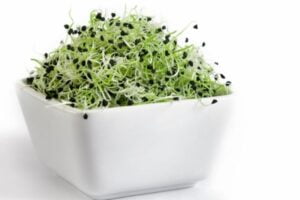 One of the most common health benefits is their ability to fight off cancer. Broccoli sprouts consist of a powerful anti-cancer agent called sulforaphane which can help to slow tumor growth.
One of the most common health benefits is their ability to fight off cancer. Broccoli sprouts consist of a powerful anti-cancer agent called sulforaphane which can help to slow tumor growth.
This cruciferous vegetable also contains antioxidants, vitamins C, K, B6, manganese, and potassium. It’s naturally high in fiber which aids in digestion and weight loss.
Consuming plant foods such as these has been shown to decrease the risk of heart disease, diabetes, and obesity.
They can be found at various health food stores, but you can easily grow them in your own kitchen. All you need is some broccoli seeds and a mason jar with a strainer lid.
Eggs
Eggs are among the most nutritious and one of the best food sources of protein. About 60% of this high-grade protein is found in the whites, the rest in the yolks. Each egg supplies a healthy dose of vitamins A, B2, B5, B6, B12, D, E, and K.
On top of all that, there’s also calcium, iron, zinc, selenium, and phosphorus. With very few calories, eggs are among the best food sources to assist with weight management. They make you feel fuller for longer while maintaining higher energy levels.
Kale
Typically eaten in salads and juice blends, kale is a wonderful addition to any healthy diet. Kale is antioxidant-rich, high in vitamin C, K, beta-carotene, calcium, magnesium, potassium, lutein, and zeaxanthin.
The powerful nutrients contained in this superfood can help to lower cholesterol, reduce heart disease, and protect against cancer. As a low-calorie food, it’s no wonder it can assist with a weight loss diet.
Lentils
Lentils come in many different varieties, such as green, yellow, brown, and red. They are a rich source of B vitamins, magnesium, iron, copper, zinc, and potassium. They are packed with fiber and protein, making them a great alternative to meat or fish.
A cup of lentils has 18 grams of protein and about 225 calories. This high level of protein helps control hunger pangs, boost muscle mass and cut calories.
Eating lentils promotes a lower risk of heart disease, stabilizes blood sugar levels, and improves digestive function.
Salmon
If you’re in search of a great protein source, look no further than this amazing fish.
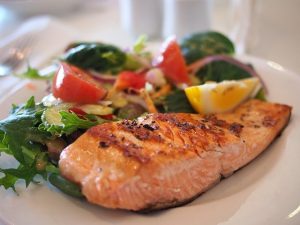
A 3.5 oz serving contains an impressive 22 grams of protein. As with other high-protein foods, it helps control the hormones that suppress your appetite to make you feel full.
Salmon is also known for its high levels of omega-3 fatty acids. These are shown to lower blood pressure and inflammation and reduce risk factors for heart disease.
It also contains vitamins B1, B2, B3, B5, B9, and B12, selenium, and potassium.
Salmon is delicious and versatile and pairs well with other superfoods, like kale and spinach.
Spinach
Possibly one of the more popular superfoods out there, spinach is packed with lots of nutrients. It’s rich in vitamins A, C, K, calcium, iron, magnesium, and potassium. It also has folic acid, which is very crucial for early fetal brain development.
Spinach is low in calories and contains mostly water so it helps to keep you hydrated. It can reduce the risk of iron deficiency, support good vision and strengthen your immune system. Furthermore, it may reduce inflammation and benefit cardiovascular health.
It’s very versatile and easy to prepare. You can steam or saute it, as well as eat it raw in a salad or smoothie.
Sweet Potatoes
Although potatoes and sweet potatoes are root vegetables, they are not really related. At only 86 calories per 3.5 oz serving, they contain 3 grams of fiber, B vitamins, potassium, manganese, and vitamin E. Their fiber content can decrease food intake, increase fullness and reduce blood sugar levels.
They also contain antioxidants that contribute to a healthy gut and protection from chronic disease. Plus, sweet potatoes have extremely high levels of beta-carotene, which is important for your eyes and immune system.
You can prepare them in numerous ways, such as fried, baked, mashed, or added to baked goods.
Wheatgrass
More and more people are adding wheatgrass to their diets in order to boost their metabolism and help with weight loss. Along with other green vegetables, wheatgrass can curb your appetite and decrease hunger.
It has only 20 calories per 3.5 oz serving while serving up plenty of vitamins A, C, E, K, and amino acids. Additionally, there are several minerals, such as iron, zinc, potassium, selenium, manganese, and copper.
It provides many health benefits like lowering your cholesterol and blood pressure, increasing energy levels, and enhancing your immune system.
The most common ways to consume wheatgrass are in the form of juice, powder, or supplements.
Ways To Include Superfoods To Your Diet
Unfortunately, with all the fast, tasty, and cheap choices at our convenience, our palates have gotten used to certain foods.
There is a preconceived notion that ‘superfoods’ (healthy foods) are either bad tasting, expensive, or require a lot of preparation.
This is entirely not the case, and your health should take priority over convenience. There are simple changes you can make every day to add superfoods to your diet. and here are just a few examples.
Blend Your Superfoods
Make a smoothie with your favorite berries. Add in some dark leafy greens, avocado, nut butters, seeds, almond milk, and a bit of Stevia for a nutrient powerhouse breakfast.
Make Tasty Desserts
Many of us are already familiar with using berries and apples as pie fillings. But how about using carrots, zucchini, almonds, or pumpkin when baking muffins and bread. Or perhaps adding layers of spinach to your lasagna.
Top It Off
Tomatoes, broccoli sprouts, shredded carrots, hard-boiled eggs, nuts, and seeds are great toppings for a super-nutritious salad. Sprinkle a teaspoon of cinnamon to add an anti-inflammatory and fat-burning boost to your morning oatmeal.
Switch Things Up

Substitute cauliflower rice for regular rice.
Make fries with sweet potatoes instead of regular potatoes. Or even replace your pasta with spaghetti squash or spiralized zucchini.
Change Snacking Habits
Instead of reaching for a bag of chips, chocolate bar, or cookies, why not choose something that’s good for your body.
Try some Greek yogurt topped with fruit and seeds, vegetables with almond butter, a handful of almonds, or even a hard-boiled egg. These will keep you full and control your appetite.
Mix It In
Another great way to add these nutritious foods to your diet is by mixing chopped, diced, or shredded vegetables into your soups, stews, tomato sauces, omelets, chili, and meatloaf.
Change Daily Habits
In order to consistently add superfoods into our diets, we must make it a daily habit. Take it slowly and make small daily tweaks until it turns into a regular habit.
Summary
There are so many health benefits to consuming more superfoods. They are super-nutritious and loaded with vitamins, minerals, and antioxidants.
If you want to improve your health and reduce your risk for certain health conditions, try incorporating some of these foods into your daily diet.
When added to a balanced diet, these foods can help prevent heart disease, decrease inflammation, boost energy levels and maintain a healthy weight.
Be creative, change things around and experiment with different healthy food combinations. Maintaining consistency is essential so that these routines will develop into a daily, lifelong, wholesome habit.
Check Out The #1 WORST Foods For Your Skin, Joints, and Blood Sugar?






